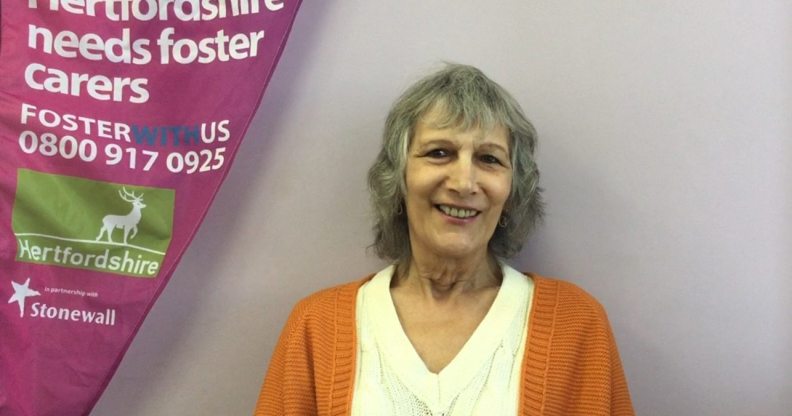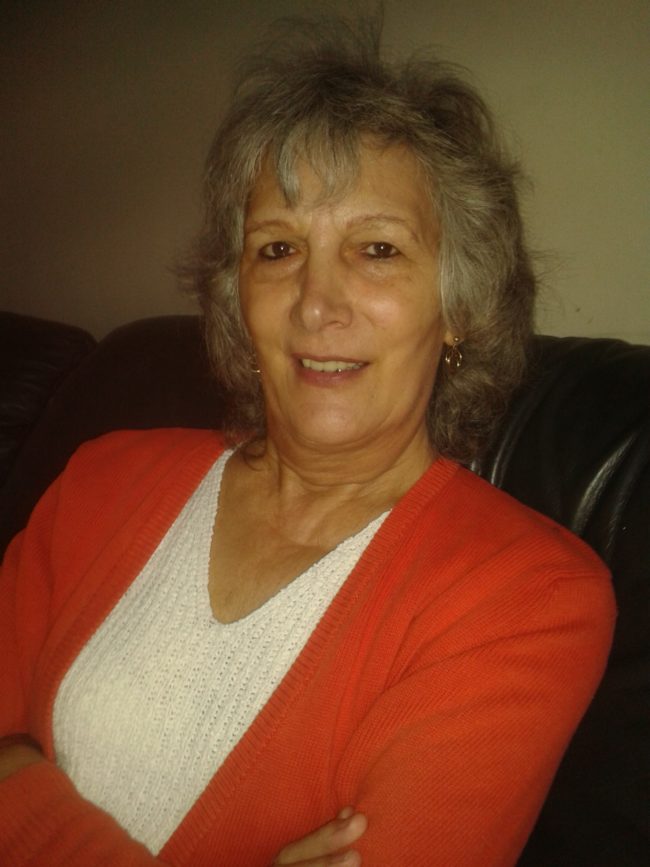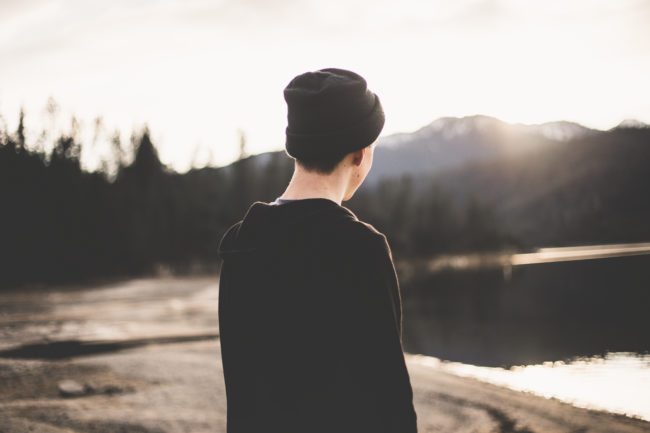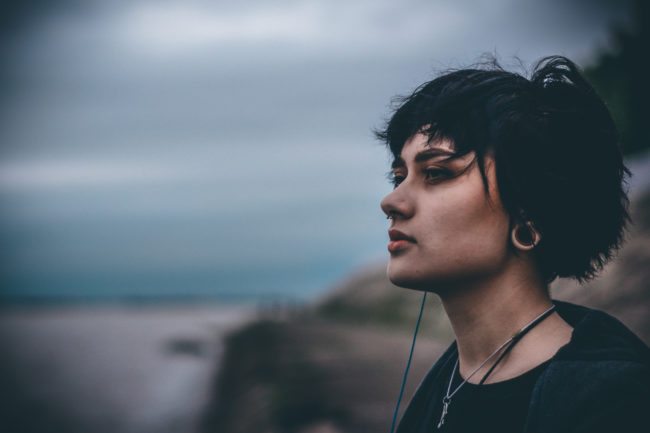‘To me, this is heaven’: how one woman’s experience as a trans foster carer has changed her life

Rona has been a foster carer for 15 years. She is also transgender. Upon her transition, she decided that she wanted to start a new life that dealt more with people. In celebration of LGBT adoption week, she has decided to share her story.
Transitioning jobs, transitioning lives
I didn’t transition over to being Rona until I was about 40. I’m a mechanical engineer by trade, and I wanted to change my lifestyle so I thought I’d work with people instead of machines.
I applied to be a foster carer, and plan B was looking after old people. I was really surprised I was accepted. I’ve got a criminal record, I was in quite a lot of trouble when I was younger – and because of those things that happened in the past, I thought they’d reject me on that, and also, obviously being trans.
Doing it gave me a fresh start. It took over a year of training, going to meetings, this that and the other. It was well and truly worth it.
The first time
I was still working when I took on the first child. I took on respite, where I had to look after someone else’s foster child for a while. Then my first young person went to an EBD (emotional or behavioural disorders) school, and he was quite a handful.
It was easier to get where he was coming from with my past experiences. I used my past to understand and help them. If I would have never had a problem in my life, you wouldn’t understand why young people do unusual things sometimes.
I think you have to get the right child for the right person. He is one of the most lovely people you’d ever come across. He’s got four children now and has got a long-term partner. He’s such a fantastic dad. He’s a worker, and he cares.
When I had him he was so aggressive. We ended up in court over various things. He stole my car and… well borrowed my car, and wrote it off. There were lots of issues. He is a real success. There’s still good contact between us.

Rona
When fostering becomes caring
Some children move on into their own lives. I’m the one person that’s always available for them, and I’ll always give it to them straight. What they decide to do is their choice. They know that if they come to me, they’ll get an honest opinion and honest thoughts. It’s like with your parents – they’re the ones who should be there for you, and give you advice, whether you take it or not.
But also, my parents struggled with me. But the fact is, they taught me right from wrong, and when I wanted to, I could sort my life out. And that’s what I do with my young people. They don’t always get it right the first time, but they can sort their lives out as they go along.
I have had about eight long-term children. I do respite, and I cover emergencies. I’ve had quite a few of those. It’s not about fostering hundreds of children – if they come to me, they’re stuck with me.
They come to me, and leave to enter independent living. I only take children who are 13+. Some leave at 18, some have left at 21.
At the moment, I’m doing emergencies every couple of months. I have to be available at the weekend in case there’s an emergency placement.
Heaven and hell
I’m so glad I’ve done it. I feel like I’ve achieved something. To me, heaven and hell is… heaven is when you have a good influence on, and leave the world in a better state than when you came to it, and hell is when you’re a really nasty horrible person and create conflict, and leave the world in a worse state.
To me, this is heaven. I feel like I’ve paid back for all of the problems I’ve caused and I hope I’ve helped to raise some really lovely young people.
I have had three LGBT children. Two of those young people have transitioned. It is awkward because the last thing I’d want to do is influence them in any way – I want it to be their decision, their choice. But I’m always there to give an honest opinion and make sure they get in touch with the right people.
People are absolutely fabulous, but unless you’ve been through it, you don’t really understand it. I’ve had other foster carers get in touch with me because they know I’m trans and they come to me for thoughts on it.
Being a trans carer
I’ve only ever had one child – to be honest I don’t think they did have a problem – but it was a religious issue. They were Evangelical Christian, and their preachings were anti-trans people. I didn’t, of course, have a problem with the young person, we didn’t have a bad relationship, but it was slightly awkward.

(Pexels)
Everyone is entitled to their thoughts and views. It took me 40 years to come to terms with it. It’s hard for my family and my brothers – harder than for me. I’ve been involved for such a long time. They found it quite hard. I understand it’s hard for some people, but if you know me before and now, it’s harder than someone who knows me now – for they just accept me for who I am.
I still see my brothers and their family. My family now have their own units. There’s no issues or problems with my brothers – they still call me by my deadname… but there’s no malice in it, so there’s not a problem.
My father wouldn’t see me. I still used to phone him up and say “Hi Dad, what do you think of this?” and it’d get him talking and we’d have a good conversation.
He would never see me, but we had a good relationship over the phone.
I’ve got support, I’ve got lovely people around me. and some lovely LGBT friends. But I tend to keep my fostering life separate from the rest of my life. I’m very protective of them.
I think it’s like everything – people from the LGBT scene have hangups, but we’re all individuals, each and every one of us. And if you don’t try, you’ll never know, will you?

(Pexels)
They don’t have to be as open as me, it’s their choice.
Families and transitioning
My experiences were that I never knew how someone would take it. I live next door to an 80-year-old spinster, and I popped around there if she needed some help. One day I had to tell her. Her thing was “Well I don’t fully understand it, but if it’s okay with you then it’s fine by me.” There was someone else who worked up in London, and I thought they’d be au fait with it, and they were mortified! I think the most important thing is to be comfortable with yourself, that’s the biggest thing.
It’s a good life, and there are so many young people who need and help and support. There are so many young people who underestimate what they need and what they can do.
It’s made life worthwhile.
The news at the moment for trans people can be a lot of doom and gloom.
But for me, I don’t feel like a transgender person – I feel like any other person.
Anyone is entitled to their opinion, but there needs to be factual information out there about what being transgender is, not biased information.
Anyone who fosters or adopts with Hertfordshire County Council can expect unrivalled support through the process, every step of the way. For more information visit www.hertfordshire.gov.uk/fostering or
www.hertfordshire.gov.uk/adoption. Alternatively, call the recruitment team on 0800 917 0925 to find out more.

